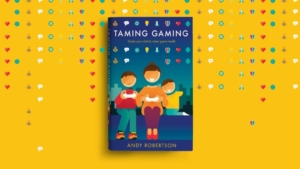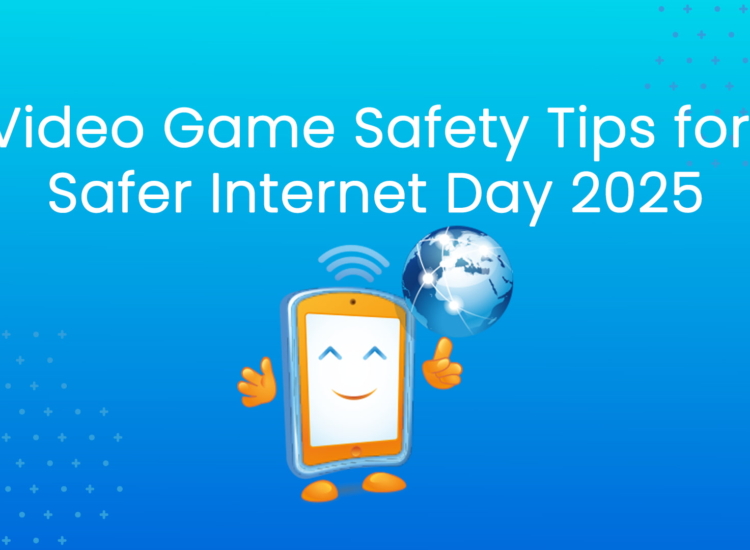Creating a Positive Video Game Experience for the Whole Family
If you love a kid who loves video games, you probably want to make sure they’re having a positive experience when they play. Fortunately, this is easier and more fun than you might have imagined.
For parents seeking to better understand how to most effectively manage the “what, when and how” of the video games their children play (while still keeping things fun), the Entertainment Software Rating Board (ESRB) is hosting a free webinar for parents: Harnessing the Positive Power of Video Games.
Some of the key topics we’ll focus on include:
- The very real benefits of video games, including the influences on children’s cognitive development, skill-building, and family bonding.
- How to set appropriate household rules and use parental controls to manage which video games your children play, for how long, and with whom online, even when you’re not around.
- Getting the most out of ESRB’s three-part rating system to help make more informed choices about the games your family plays.
Read on for details about this informative online session, which features expert panelists sharing helpful insights about how to create an appropriate, fun and positive video game experience for your entire family.
Embracing Your Children’s Passion for Video Games
If you’re a non-gaming parent, you’ve probably asked yourself why your kids love video games so much. You’re not alone!
Andy Robertson, video game journalist, author of the book Taming Gaming, and panelist in the ESRB’s upcoming webinar, explains how he explored his kids’ interest in games, without stigmatizing their passion.
After 10 years of playing video games with his kids, Robertson says that, while kids don’t need their parents’ help playing games, they do need their parents to “model a healthy relationship with” games. This includes how to stop playing when necessary, prioritizing face-to-face communications, and integrating games in a balanced way into the rest of their life.
Instead of relying on inflexible time restrictions, Robertson recommends creating limits that can shift and bend based on the circumstances – or as he refers to it, “parenting rather than policing.”
Robertson also encourages parents to play games with their kids. What if you’ve never picked up a controller before? It’s easy to get intimidated, but don’t worry! There are many games that include simple controls so even non-gamer parents can get in on the fun. And never underestimate what you can learn by simply sitting down with your kids during video game time and asking questions. Chances are they’ll love explaining the intricacies of their favorite games to you.
Picking Appropriate Games And Setting Limits
In our upcoming webinar, we’ll provide practical advice on how to make informed decisions about the games your kids want to play. We’ll discuss how to:
- Take full advantage of the three-part ESRB rating system
- Enable parental controls to help manage the what, when, and how of the video games your children play
- Maintain the balance between trusting your kids and enforcing household rules
- Make video games a normal part of conversations with your kids, including playing together as a family
Most important, my fellow panelists and I will go into detail about how to turn the conversation around video games into a positive and collaborative family experience.
If you’re interested in getting a head start on how you can begin the conversation, check out ESRB’s Family Discussion Guide.
Playing Games Is Good for Your Child’s Development
When playing video games, your child is doing more than just having fun — it’s fostering their healthy emotional and cognitive development. In her book A Parent’s Guide to Video Games, research psychologist, and panelist in ESRB’s upcoming webinar, Dr. Rachel Kowert asks: “Can cognitive skills be honed through video game play?”
The answer is an unequivocal yes.
“Video game play has been associated with the improvement of a range of cognitive skills, such as improved goal setting, initiative taking, and persistence in the face of difficult challenges. Video games are great vehicles for sharpening cognitive skills because they provide a wide range of different challenges within a single space. For example, in many games, players explore new spaces, solve puzzles, craft objects, and cooperate or compete with other players to achieve increasingly difficult tasks. These experiences are great for learning, as players must constantly develop strategies and solutions for new problems in a relatively short amount of time.” — Dr. Kowert
Dr. Kowert will share a host of cognitive benefits that your children can gain from playing their favorite video games. To learn more, join the webinar!
Finding Options Suitable for Every Gamer
No matter your age, interests, and skill level, there are video games out there for you.
Of course, some kids and adults have specific needs that affect which video games they can play. Physical or cognitive impediments can make some games unapproachable — but, fortunately, the video game industry has been making strides in accessibility to ensure that there are good options for every gamer.
Whether you or your kids have difficulty with reading, navigation, visuals, mobility, or something else, there are games out there that feature settings to help your whole family to get in on the fun.
As part of his commitment to making video games approachable for all families, webinar panelist Andy Robertson set out to create a tool to help parents find video games with the accessibility settings they need. Robertson’s Family Video Game Database offers a comprehensive accessibility search so you can find games that your whole family can enjoy, regardless of special needs.
Armed with the right resources and strategy, video games can be an appropriate and fun activity for the whole family. But there’s no set-it-and-forget-it solution, so be sure to watch our upcoming webinar where our expert panelists will help you harness the positive power of video games.






